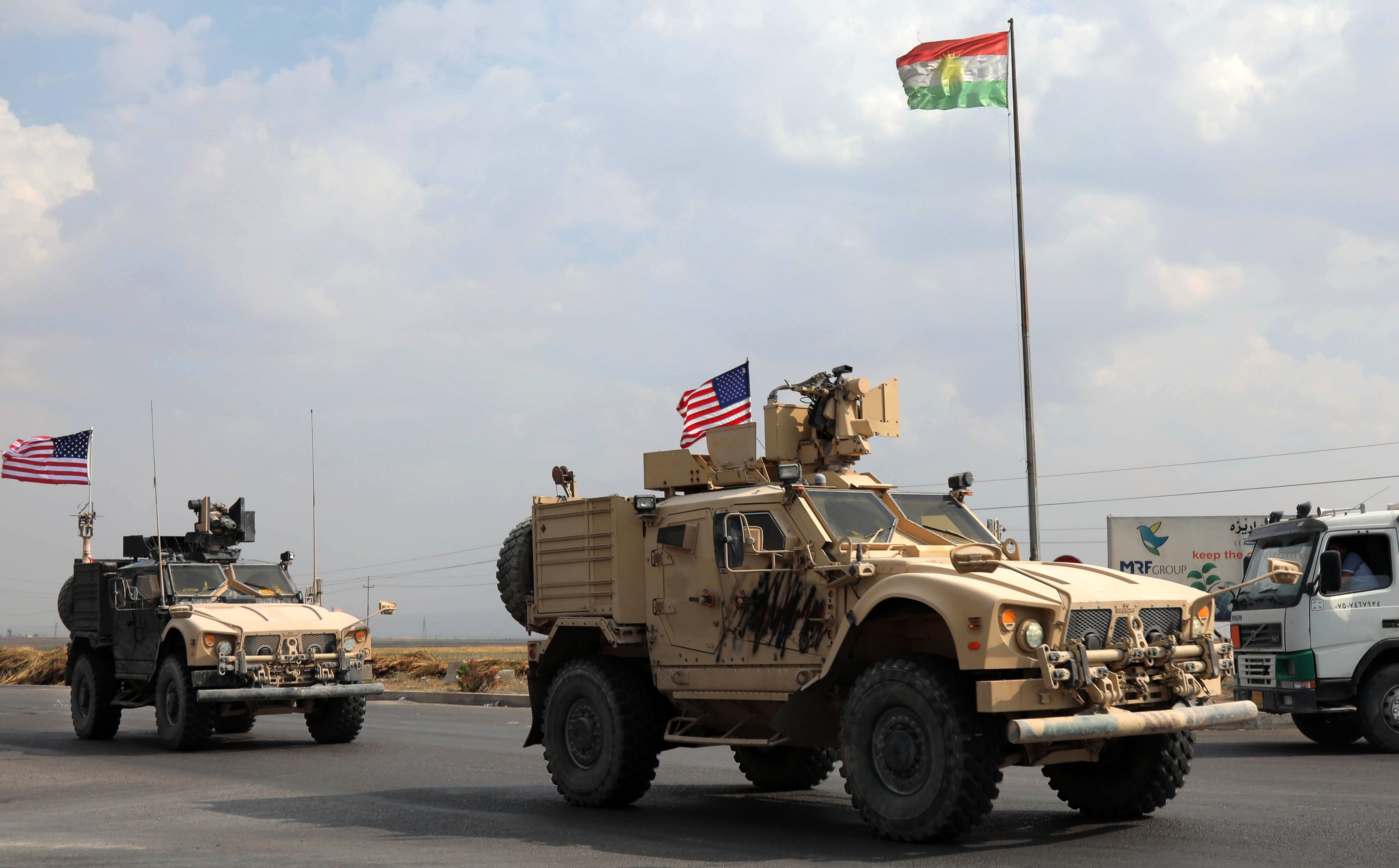After 28 years of U.S. forces participating in continuous combat in the Middle East, it is not surprising that a popular consensus exists to reduce U.S. military presence in the region. President Trump used this perspective to defend his recent decision to withdraw from Syria, declaring that he is “bringing soldiers home.” However, withdrawing some number of American troops from the Middle East distracts from the larger question of how the U.S. can best achieve its strategic objectives. That question involves much more than a count of the number of pairs of U.S. soldiers’ boots on the ground.
Having a credible deterrent posture where the U.S. would neither tolerate an attack on itself nor its allies was crucial to Cold War geopolitics and has remained a vital part of American policy since.
This broke down in 1961 when Soviet Premier Khrushchev left a summit with President Kennedy thinking he could expand the Soviet Union’s nuclear capabilities without an American response. Khrushchev made the inflammatory move of putting missiles in Cuba precisely because he thought he got the full measure of Kennedy and believed him to be weak. Kennedy did not properly prepare, but he learned from his mistake, reestablishing American credibility only after both sides risked potential calamity during the Cuban Missile Crisis.
More recently, President Obama’s belief that “dropping bombs on someone to prove that you’re willing to drop bombs on someone is just about the worst reason to use force” ignored that adversaries stop fearing threats if presidents fail to use force when U.S. interest demands it. The failure to uphold the redline against Assad’s chemical weapons use in 2013 was a strategic blunder that led the Russians to reenter the region. This decision, along with Obama’s withdrawal from Iraq in 2011, suggested an American retrenchment in global security interests that Russia capitalized on to move into Crimea and Eastern Ukraine, and China’s calculus that it could initiate island-building to expand military outposts in the South China Sea without any significant U.S. response.

The conclusion of a nuclear development agreement that favored Iran in 2015 was another indicator of the softness of U.S. global security policy. Since the U.S. left the Iran nuclear deal, Iran has been further ramping up its aggression throughout the Middle East. Iran’s downing of an American drone and attacks on Saudi Arabia’s oil facilities shows it no longer believes U.S. reprisals are forthcoming. The U.S. has tried to establish a credible deterrent to a future attack through deployments of American forces and defensive systems to Saudi Arabia, but these measures amid the Syria withdrawal, and the current pause in it to secure oil fields to block further Iranian advantage, sends mixed signals about the U.S.’s commitment to the region at large.
Despite fighting “by, with and through” the Syrian Democratic Forces (SDF) to rout ISIS without a large American ground presence, stated ground force withdrawals from Syria effectively greenlighted a Turkish invasion and forced the Kurds to turn to Russia and Syria’s Bashar al-Assad, a man who used chemical weapons on his own citizens.
America’s misplaced focus on how many troops it has deployed casts doubt over the real issue of U.S. critical security interests and how they relate to support of its allies. The U.S. is unlikely to abandon its nation-state partners in the Middle East — not least because they have strong political and economic connections to U.S. security interests. However, random changes of policy bring into question whether allies can rely on the U.S. to support them and deter common adversaries.
The U.S. needs to stop conducting strategy by using the number of boots it has on the ground as a measure of merit. Instead, it should focus on creating outcomes that it can achieve. America’s unique airpower advantage, in coordination with allies providing any necessary ground component, is a more appropriate approach to achieving mutual security objectives.
However, the uncertainties introduced by recent U.S. security policy moves may result in increasing challenges in finding partners to work “by, with and through,” limiting its ability to operate abroad with fewer American troops on the ground.
America’s adversaries and allies are now competing with greater uncertainty as to how the U.S. will respond. Adversaries will more readily cross redlines, not understanding which are real, and allies will increasingly operate independent of U.S. support without a course correction in U.S. security policy. It will remain important to respond to provocations with deterrent force while striving to avoid overacting.
Bolstering deterrence will require the U.S. to respond effectively with greater consistency to provocations. To do so, the U.S. should embrace capabilities, such as airpower, special and cyber operations, that limit the risk for escalation while still sending a clear deterrent message.

It will be a long-term task, but America can restore its security credibility by replacing the focus on troop counts with the unique capabilities it can use in conjunction with local partners to achieve mutual security objectives.
Retired Lt, Gen David A. Deptula is former chief of Air Force intelligence, surveillance and reconnaissance and a senior adviser at the Jewish Institute of National Security of America’s Gemunder Center for Defense & Strategy. Ari Cicurel is a policy analyst at JINSA’s Gemunder Center.
The opinions expressed are those of the authors and do not necessarily reflect the views of Military Times or its staff. If you would like to respond, or have an editorial of your own you would like to submit, please contact Air Force Times Editor Kent Miller, kmiller@militarytimes.com.




